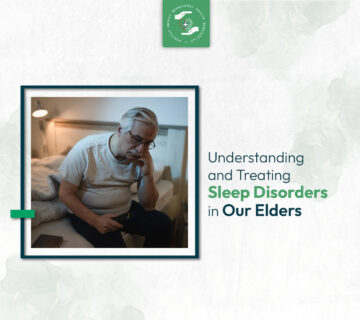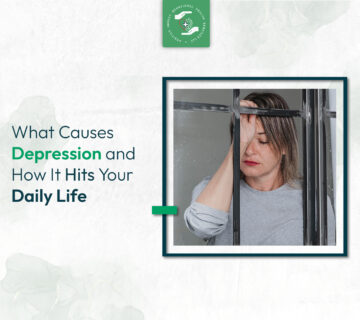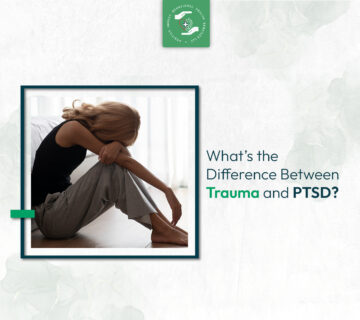In today’s digital age, technology and social media play a huge role in our daily lives. While these digital tools have brought incredible benefits, they also come with their share of challenges, particularly to our mental health. This blog will explore how technology and social media affect our behavioral health, discussing both positive and negative impacts, and offering tips to manage our digital consumption for better well-being.
The Rise of Technology and Social Media
Technology and social media have become integral parts of modern life. Platforms like Facebook, Instagram, and Twitter have connected us in ways we never imagined possible. However, as their use has surged, so have concerns about their effects on mental well-being.
The extraordinary rise of technology and social media usage in recent years is undeniable. According to recent statistics, there are now over 4.9 billion social media users around the globe, each spending an average of 145 minutes on these platforms daily viewing posts from friends and family from across the world. These platforms allow unparalleled levels of interaction and information sharing, promoting global connectivity. However, this proliferation isn’t without its complications, offering new avenues for both positive engagement and significant behavioral health concerns.
Positive Impacts on Mental Health
While it’s easy to view technology and social media skeptically, they offer significant benefits. They’ve provided a platform for raising awareness about mental health issues, creating online communities of support, and offering access to online therapy and mental health resources.
One of the greatest advantages of social media is its ability to raise awareness about mental health and promote educational content. Numerous organizations and influencers use platforms to share their stories, reducing the stigma often associated with mental health issues. This has resulted in increased accessibility to crucial information and resources for those in need.
Furthermore, social media’s capacity to create online support communities is transformative. Platforms like Facebook groups and Reddit forums provide spaces where individuals can share their experiences without fear of judgment. These communities foster a sense of belonging and provide invaluable emotional support, showing individuals that they are not alone in their struggles.
Notably, technology has also facilitated access to online therapy. Many people now turn to telehealth options for counseling, which can be more accessible and less intimidating than in-person sessions. These virtual mental health services offer therapeutic support, tools for stress management, and continuous monitoring, all of which contribute to improved overall well-being.
Negative Impacts: Anxiety, Depression, and Addiction
On the flip side, excessive use of technology and social media can lead to issues such as anxiety, depression, and even addiction. The constant need for validation through likes and comments can contribute to low self-esteem and feelings of inadequacy. Additionally, cyberbullying has become a major concern, particularly among younger users.
The dark side of social media overuse can be deeply concerning. Prolonged exposure to carefully curated content can lead to FOMO (Fear of Missing Out), an anxiety-inducing phenomenon where individuals feel they are missing out on rewarding experiences that others are enjoying. This feeling is exacerbated by ‘highlight reels’—posts that showcase the most enviable moments of others’ lives but provide an unrealistic standard for all.
Cyberbullying is another detrimental effect of excessive social media use. Disturbingly, a large percentage of internet users have experienced online harassment, which can have devastating effects on an individual’s mental health. Victims of cyberbullying often suffer from heightened levels of anxiety, depression, and, in severe cases, might even contemplate self-harm.
Moreover, the addictive nature of social media cannot be understated. The pursuit of likes, shares, and comments can become a compulsive activity, stimulating the brain’s reward center and releasing dopamine. This feel-good chemical is associated with pleasure, which compels individuals to continue seeking validation online. Such digital addictions can severely impact personal relationships, professional duties, and overall mental stability.
Understanding Behavioral Triggers
It’s important to recognize the behavioral triggers that lead to unhealthy technology usage. From the fear of missing out (FOMO) to the instant gratification of notifications, understanding these triggers can help us manage our time online and reduce negative impacts on our mental health.
Our dependence on technology often stems from deep-seated behavioral triggers. For example, notifications on our devices offer instant gratification, difficult to resist. Each like, message, or comment provides a dopamine spike, reinforcing the behavior of checking devices frequently. This creates a cycle of constant validation-seeking, making it challenging to put our phones down.
The phenomenon of FOMO is another significant trigger. The curated lives we observe online can invoke feelings of inadequacy, compelling us to stay connected constantly. This need to stay updated can detract from real-life engagements, contributing to social isolation and increased anxiety.
By understanding these triggers, we can better manage our digital habits. For instance, turning off unnecessary notifications can reduce compulsive checking. Mindfulness practices can also help in recognizing when we are engaging in behaviors that aren’t beneficial to our mental health. (Read more about the role of mindfulness in trauma counseling and recovery).
Strategies for Healthy Digital Consumption
To mitigate the negative effects of technology and social media on mental health, adopting strategies like setting time limits, curating your feed to include positive content, and taking regular breaks can be incredibly beneficial. Developing a balanced approach to digital consumption helps in maintaining better mental health.
Establishing healthy boundaries is key. Begin by setting specific time limits for daily social media use. Numerous apps can help track and limit your usage, providing a clearer picture of how your time is spent. This can prevent the mindless scrolling that often leads to unnecessary stress and anxiety.
Another effective strategy involves curating your feed to include positive, uplifting content. Follow accounts that promote well-being, education, and positivity. Unfollow or mute accounts that trigger negative feelings or contribute to a sense of inadequacy. Creating a digital environment filled with inspiration and encouragement can significantly improve one’s mental outlook.
Regular digital detoxes are also essential for maintaining mental balance. Taking breaks from social media, even if just for a few hours, can refresh your mind and reduce feelings of burnout. Engage in enriching offline activities like hiking or reading. These activities not only offer a break from screens but also enhance overall well-being.
Incorporating mindfulness techniques can further enhance your relationship with technology. Mindfulness encourages being present and fully engaged in activities at hand, which can help counteract the compulsive urge to check your phone. (Explore how mindfulness supports mental health in trauma recovery).
Seeking Professional Help
Sometimes, despite our best efforts, the negative impacts on our mental health can become overwhelming. In such cases, it’s crucial to seek professional help. Behavioral health professionals can offer the support and tools needed to navigate these challenges effectively.
Identifying when to seek professional help is vital. If you or someone you know is struggling with serious mental health issues such as depression or anxiety, it is important to consult with a mental health professional. They offer comprehensive mental health monitoring and tailored interventions that can significantly improve one’s mental health journey.
Professional therapy services play a critical role in managing and alleviating the symptoms induced by excessive technology use. Through personalized counseling and therapeutic interventions, therapists can provide coping mechanisms and strategies tailored to individual needs. This personalized approach ensures that each person receives the best possible care for their specific circumstances.
For those facing severe issues stemming from technology and social media overuse, exploring various therapeutic options, such as cognitive-behavioral therapy (CBT) or mindfulness-based stress reduction (MBSR), can be beneficial. These evidence-based approaches target the underlying issues, helping individuals develop healthier relationships with technology and improve their overall well-being.
Balancing Technology and Mental Health
In conclusion, technology and social media are double-edged swords when it comes to mental health. By understanding their impacts, both positive and negative, we can take steps to use them mindfully and protect our behavioral health. Let’s strive to leverage technology and social media in ways that enhance our well-being rather than detract from it.






No comment